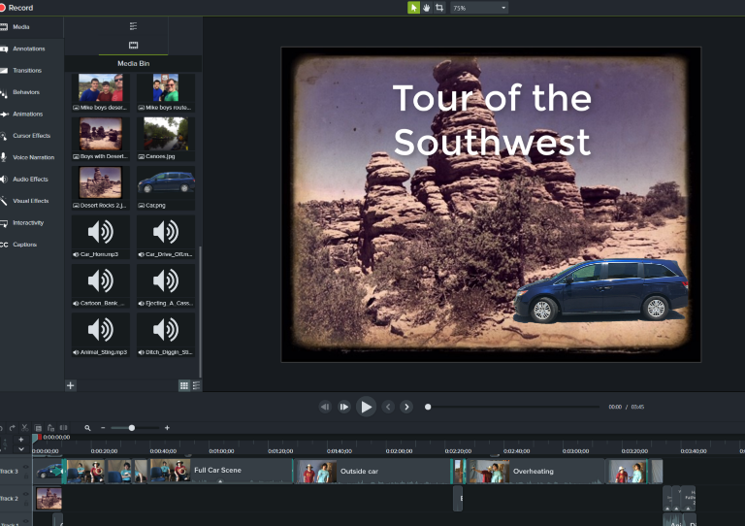How to write a skit for and about your family
By: Anna Hallett, Director, The Writing Party

Family Skits for Fun and Gifts
A few weeks ago, I posted a suggestion on The Writing Party Facebook page to write a family skit for Father’s Day and someone asked where I got the idea. I explained that I had actually written two skits for my kids to perform for their father who is working overseas. I knew we would not be with him on Father’s Day, would not be able to celebrate together and watch him open gifts. A video seemed like a good way to both share and create memories. I posted the idea to the website because I realized with COVID-19 there were other families who could not be together for Father’s Day and a video would be a nice way for them to use their writing to bridge the physical distance to share their love and appreciation with their fathers.
But family skits are fun any time, not just Father’s Day, and you can go in so many directions. I will give you a little peek into my process and hopefully it will inspire you to concoct your own theatrical creation. I will then outline how to write a skit for and about your family.
Creating my skit
My sons are both in their late teens, so I was not creating a cute little skit with toddlers stumbling through lines. The skits could have some meat to them and, actually, needed some depth since I couldn’t just lean on their baby cuteness to carry the show. I took each boy for a walk, just the two of us, and I asked them about memorable moments with their father. Each boy focused on a trip with significant bonding interactions. Derek honed in on a drive through the southwest and Jack remembered a Scouting canoe trip.
Once focused on these events, the boys and I made a list of “dadisms”—habits and tics that make their father unique. For example, my husband drinks lots of Diet Coke, can bend nails with his bare hands, takes great pride in being able to do muscle ups, and dedicated a lot of time encouraging the boys in their studies for AP tests. I wanted to bring all of these elements into my scripts.
Writing my skit
I wrote two scripts using the notes I took on the boys’ memories and ideas. The action and dialogue are set on simple stages I thought we could build easily. The southwest trip is driving in the van and outside in the desert. The canoe trip is in the canoe traveling down a river.
The dialogue sets up the scene and then I throw in a mini obstacle to overcome. In the southwest skit, Dad becomes overcome by the heat and must be rescued by Derek with a Diet Coke. In the canoe skit, Dad and Jack escape from an alligator. As you can imagine, the drama is more for fun than a reenactment of actual events. The dialogue is full of inside jokes and “dadism” references. It feels a little like a friendly roast. If you saw it, you would not get it. But that’s okay. I wrote it for Derek and Jack’s father. He got it and knew when to laugh.
Performing and recording my skit
We cleared out the living room and built our sets. Chairs and a steering wheel were the van, a lamp disguised as a cactus was the desert, and a bent exercise pad surrounded by blue sheets was a canoe. I used my phone to film and Camtasia for editing. It took most of a Saturday afternoon to complete the filming and a few hours after that to edit. The movies were about five minutes long, simple, amateurish, and very personal. Following each skit, the boys said a few words of thanks to their dad. None of us will win an Academy Award for these silly little productions, but we created a unique gift, memorialized treasured memories, formed new memories, and created something lasting.
Write a skit for your family
Ideas
To write your own family skit, start brainstorming ideas with your family. Consider funny, memorable, inspiring, or poignant memories. Focus on a single, self-contained moment. Your story should not be so big it requires backstory. Within a timeframe of five to ten minutes, you will need to get right to the point. However, if your skit is for and about your own clan, much of the context will already be in your family’s collective memory, so backstory will be understood. If this is a family production, you will also need to write a play based on the number of actors you have available and your stage potential. It’s best to use a minimum of characters, costume changes, and scene changes.
Have fun with your skit and dress up your characters with the quirks of the people who inspired them. Make a list of foibles, idiosyncrasies, habits, and inside jokes associated with your family and your characters and sprinkle them throughout your script in the dialogue, actions, costumes, set, and wherever appropriate. These additions add much to the identity of the characters and the humor of the story. Remember you love these people, so keep your impressions light and friendly, and avoid anything meanspirited or that might cause hurt feelings.
When constructing your plot, think about the following questions:
- Who is your play about?
- What does you character want?
- What is stopping him/her from getting it?
- What is the conflict or problem to solve?
- How is the conflict resolved?
Writing
When writing a play, your tools are speech and action. Everything your audience knows about the characters and the story is wrapped up in what is being said and done on stage. If ever you want “show, don’t tell,” this is the medium. The most effective use of your limited time is to focus on a self-contained scene that is not dependent on backstory and a long set up. Jump right in and get to the punchline. Actions (and props) should be big and easy to see by an audience member in the back row.
A skit is a story told by actors, and like a story, should have a beginning, middle, and end. For a short skit, you will need to grab the audience’s attention quickly, so start your story a little before the climax. As your scene opens, things appear normal. Then something out of the ordinary occurs. The tension increases; the action rises. The story hits its climax—the drama reaches its peak. The story ends with a resolution and a return to (a new) normal. Unless you are waiting for Godot, a captivating skit has tension, conflict, and resolution. This is true even if your performance is only five minutes long.
When creating your scene, design it around a simple setting. Think about the stage, props, and backdrop you have available to you when putting your characters in a scene. Consider where your play will be performed. How big is the stage? Is there room for characters to exit the stage? What set dressing do you already have or can you make? What furniture is available to you? What costumes do you have or can you make? What props do you have?
Dialogue should also reflect the ability of your cast. If your actors are 4 and 6 years old, keep it short and simple and cut it into bite sized pieces they can handle. Older children and adult actors give you more leeway in the length and sophistication of their lines.
As a broad guideline, one page of script usually equals about one minute of performance.
Performing
This is the fun part. Create a stage for a live audience or design a set to video record on. Gather props and costume your actors. As a homemade production, the set does not need to be perfect. If you need an oar but only have a hockey stick, use it. Sometimes you need to be creative to achieve your vision. These adaptations can also add to the overall humor of the final piece.
Have your cast rehearse a few times and learn their lines. This is for you, so if your actors need to hold their scripts during the show, so be it. If you are creating a video, you can perform the skit just a few lines at a time, stopping the camera between takes, so actors only need to remember one or a few lines of dialogue at once. This method works well with younger children. In editing, you can string together the successful takes into a full production. If you have a really good editing program and maybe a green screen, you can also throw in some fun special effects in post-production.
After the performance, bask in the applause and praise of your parents, grandparents, aunts, uncles, cousins, and friends.
Summary
- Gather memories and ideas from family members.
- Make a list of your family’s or a family member’s quirks and inside jokes.
- Write a story with an arc by including a conflict and resolution. Incorporate pieces from your list of quirks and inside jokes.
- Recruit family members to be your actors.
- Build a stage and set for your skit. Give your actors costumes and props.
- If you are able, film your production for posterity.
- Share your show with family and friends.
- Save the script and, if you have it, the video for future generations to enjoy.
For more writing ideas, order The Writing Party Inspirations or contact us to schedule a Writing Party event in your area, for your private group, or as a corporate team building event.
